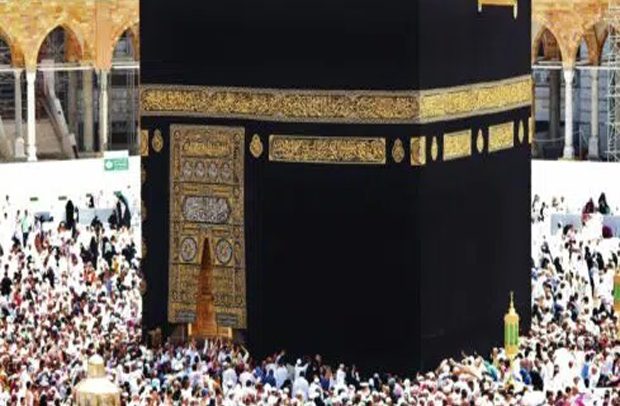A national Hajj Coordinator of the Independent Hajj Reporters, Ibrahim Mohammed, has observed that there is a worldwide astronomical increase in Hajj fare. According to a comprehensive report on the subject which has resonated across Ghanaian circles after it was propelled on social media, Pakistan, India, Bangladesh, Malaysia, Indonesia, Egypt, Iran, Oman, Singapore, and Morocco are some of the countries experiencing the development. Ghana, with its long distance away from Saudi Arabia has one of the lowest fares.
The astronomical increase in the 2023 Hajj fare is relative to what pilgrims from those countries paid during the 2022 Hajj, the coordinator observed adding “interestingly, seven of these countries belong to the top 10 with the largest number of pilgrims.”
The Guardian newspaper has been told that the global upsurge in the Hajj economy is not unexpected.
“Peculiar economic challenges across the country could have also played critical impact,” the Hajj expert stressed, adding that “no participating country could be insulated from the general hike.”
According to him, “The increase in the 2023 Hajj fare globally was mainly due to exchange rates (the rising power of dollar vs the Hajj participating countries currencies), the universal rise in air tickets because of the high cost of aviation fuel. But most essentially, the peculiar strength of local currencies against the dollar tells much. We all know how power the American currency plays globally and most significantly in the Hajj business.”
“Again, the Saudi Arabia government has introduced some charges and increased the existing one. That’s also added up to the global increase. For instance, the increase of Value Added Tax (VAT) by 15 per cent from 5 per cent, the high cost of accommodations especially in Makkah, increase in cost of service in holy sites like Mina, Muzdalifa and Arafat, increased in the number of pilgrims from 1 million last year to over 3 million expected to perform this year’s Hajj.”
Air tickets, accommodation, feeding, agent fees, and payment for car syndicates services make up about 95 per cent of Hajj service cost templates and these payments are transacted in dollars, thereby making it very difficult to control the costs locally.
Hotels are owned by private companies whose interest most times is to break even for the shareholders. “Tawfiq Fawzan (Saudi Arabia’s Hajj and Umrah Minister) said that he has no jurisdiction over the hotel rates and that we will have to deal directly with the hotel owners there,” he added.
Despite the closeness of Arab countries in terms of hours of flight, the cost of performing Hajj across most Arab countries has increased in comparison to previous years.
The increase, according to Al Jazeera, was due to global inflation, a rise in flight tickets and mandatory services needed for Hajj, as well as the increase in VAT rates in Saudi Arabia –from 5 per cent to 15 per cent.
The average cost of prices from Arab countries are: Qatar ($10,971), Emirates ($10,821), Tunisia ($9,884), Lebanon ($9,000), Morocco ($7,698), Kuwait ($7,578), Bahrain ($7,559), Egypt ($6,910), Palestine ($6,234), Algeria ($5,853), Sudan ($5,447), Iraq ($3,825), Syria ($3,700), Yemen ($3,416), Saudi Arabia ($3,198), Jordan ($2,961), Oman ($1,797).
Nigerians are holding their breaths awaiting the final fare, especially those who have paid their deposits. Unfortunately in Ghana, the subject has been given a political slant especially by persons who should have known better.
By A.R. Gomda

